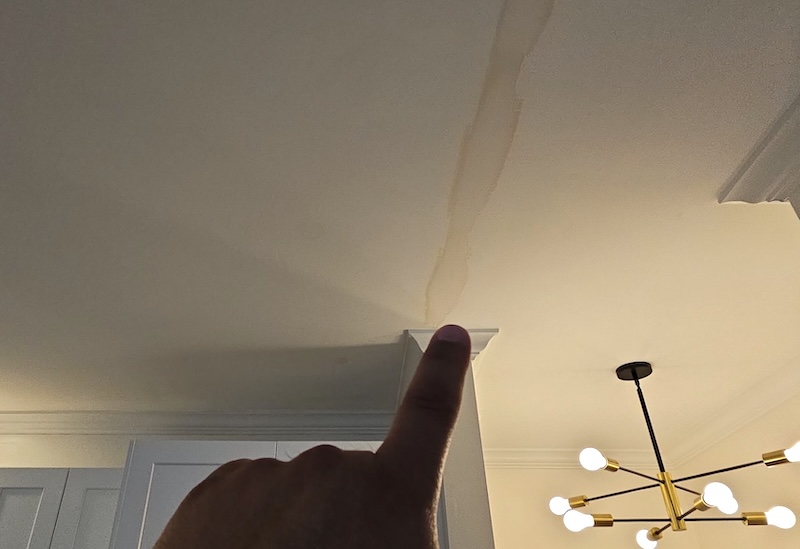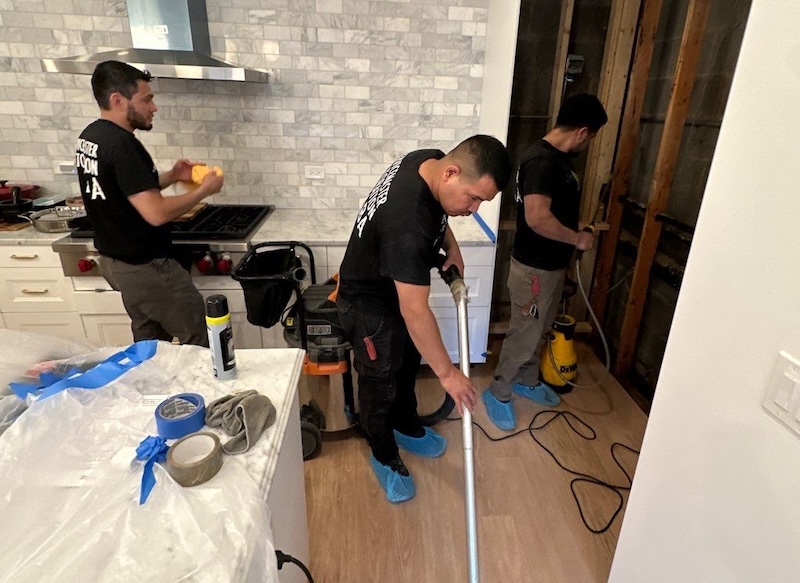Water damage in a multi-tenant building is serious—it can lead to structural issues, health risks, and costly repairs.
And in a city like Chicago, with its aging buildings and wild weather, things can spiral quickly.
At ServiceMaster by Zaba, this is our area of expertise, as we’ve been handling water damage emergencies across Chicagoland for years.
If you’re dealing with water damage in a multi-unit property, here’s exactly what you need to do.
Key Takeaways
- Water damage in multi-tenant buildings can spread quickly and create health, safety, and legal issues.
- Property managers must prioritize safety, notify tenants, identify the water source, document everything, call in professionals, work with insurance, and ensure proper repairs.
- If you’re facing multi-unit water damage in Chicago, call ServiceMaster by Zaba: (773) 647-1985 – we respond 24/7, identify hidden damage, handle full restoration, and work directly with insurance to streamline the entire recovery process.
7 Must-Dos When Dealing With Multi-Unit Property Water Damage

1. Keep Everyone Safe
First things first: make sure no one gets hurt.
Shut off electricity and water in the affected areas. Post warning signs. Keep people out of any areas that are wet or unstable.
Quick tip: Always have your emergency contacts handy—restoration team, plumber, electrician. When water’s pouring through a ceiling, you don’t want to be digging through a file cabinet.
2. Talk to Your Tenants—All of Them
Don’t just notify the unit where the leak started. Water damage typically isn’t contained to just one floor.
Use every communication channel that’s available—texts, emails, and notices in the lobby.
Be clear, honest, and as calm as possible. Share timelines, what to expect, and when you’ll check back in.
Pro tip: A solid tenant communication app makes this way easier in emergencies.
3. Find the Source—and Stop It
Sometimes it’s obvious (like a geyser shooting from a pipe). Other times it’s a slow drip from a roof, or a hidden leak behind the wall.
Don’t wait or guess—bring in pros like ServiceMaster by Zaba. We have leak detection tools to track it down fast.
The sooner you stop the source, the less damage you’ll have to deal with.
4. Take Photos, Notes, and More Photos
Before anyone starts cleaning up, document everything.
Snap pictures of wet walls, damaged flooring, dripping ceilings.
Write down unit numbers, what’s damaged, and when it happened. Keep a timeline of your response—it could make or break an insurance claim.
5. Call ServiceMaster by Zaba
We’re local. We know Chicago buildings. And we don’t waste time.
Once we’re on-site, we get to work right away: water extraction, drying, mold prevention, and full restoration.
We handle everything—from cleanup to working with your insurance adjuster—so you don’t have to juggle a dozen different vendors.
We’ve worked in high-rises, condos, and everything in between. We understand Chicago’s regulations, tenant laws, and how to move projects forward without delays.
6. Contact Your Insurance (and Legal if You Need To)
As soon as you can, call your insurance provider. Review lease agreements too—liability in multi-unit properties can be complicated.
If you’re not sure who’s responsible for what, talk to a lawyer.
We help manage your insurance claim by providing moisture readings, photos, and detailed reports your adjuster needs to process it.
7. Don’t Skip Follow-Up Repairs
The place might look dry, but water can hide in walls, under floors, and behind cabinets. If you leave it alone, mold and structural issues will sneak up later.
Watch for:
- Musty smells
- Peeling paint or warped drywall
- Flickering lights
- Tenants complaining about allergies or headaches
We’ll come back to re-check moisture levels and make sure everything’s actually fixed—not just surface dry.
What We Do (So You Don’t Have to)

At ServiceMaster by Zaba, we do more than dry things out. We manage the whole restoration process.
Here’s what that looks like:
- 24/7 emergency response — No waiting till Monday.
- Leak detection — Thermal imaging, moisture meters, and more.
- Full drying and dehumidifying — No soggy drywall left behind.
- Mold prevention — Antimicrobial treatments and proper ventilation.
- Insurance handling — Photos, reports, moisture logs, and detailed estimates.
- Repairs and rebuilds — Drywall, flooring, painting—you name it.
Dealing With Multi-Unit Building Water Damage in Chicago? We Can Help
In a multi-tenant building, you’ve got residents counting on you. Every hour you wait, water damage worsens.
Let us take it from here. We’ve been restoring water-damaged buildings across Chicago and the suburbs for over 15 years with our real estate restoration services.
Call now to request an inspection: (773) 647-1985
Helpful Resources
- Chicago Department of Buildings
- City of Chicago Emergency Management & Communications
- Chicago Weather Forecast
- FEMA – Flood Maps
FAQs
What causes most water damage in Chicago’s multi-tenant buildings?
Frozen pipes, roof leaks, old plumbing, HVAC issues, sewer backups—you name it. Our buildings are tough, but they’ve seen a lot.
Who’s responsible for the damage?
Depends on the lease and the source of the water. Usually, property managers handle structural repairs, while tenants are responsible for their belongings—unless someone was negligent.
When should I call a restoration company?
Immediately. Mold starts growing in as little as 24 hours. The longer you wait, the more complicated and expensive the job becomes.
Can tenants stay during repairs?
Sometimes, yes. But if there’s major damage or health risks (like mold or exposed wiring), they may need to be relocated temporarily.